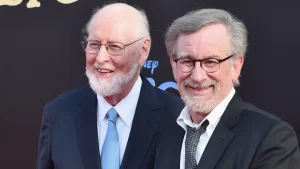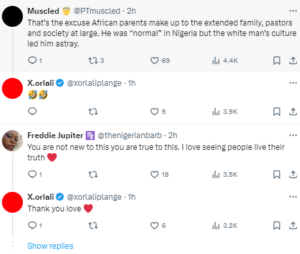Hollywood’s maestro John Williams aims to make more Oscars history

From “Star Wars” to “Jaws” to “Schindler’s List,” John Williams has composed many of the most instantly identifiable music in movie history.

The 91-year-old, who was recognized for his minimalist yet moving compositions for Steven Spielberg’s “The Fabelmans,” is already the oldest individual to be nominated for an Oscar in a competitive category.
Williams has received 53 nominations overall, which is more than any other individual currently alive and is only surpassed by Walt Disney, who received 59 nominations.
And if he wins on Sunday, it will be his sixth trophy, making him the oldest winner in the history of any competitive category. Screenwriter James Ivory, who was 89 when he won, presently holds the record.
Williams recently told NBC News that it “seems unbelievable that somebody could be that old and working that long,” adding, “It’s extremely exciting, even after 53 years.”
“The joy of any form of recognition of one’s work,” the author said, “is a human thing. I’m extremely thrilled.”
Despite receiving numerous nominations throughout his remarkable career, the composer only took home Oscars for the original “Star Wars,” “Fiddler the the Roof,” and three Steven Spielberg movies: “Jaws,” “E.T.: The Extra-Terrestrial,” and “Schindler’s List.”
Even against himself, he has often contended for Oscar success.
William is renowned for his opulent Wagnerian-style neo-Romantic scores, in contrast to the more experimental music that many contemporary composers outside of Hollywood like to produce.
Yet he also heavily incorporates mid-century influences like jazz and well-known American tunes into his compositions.
Williams insists that he is not as Wagnerian as his music might suggest, but he acknowledges that the German giant’s effect on the early composers of Hollywood, and consequently his own, is obvious.
Wagner lives here with us; you can’t get away from it, he told The New Yorker in 2020.
“I have been swimming with everyone in the large river.”
Williams was the eldest of four children and was born on February 8, 1932, in the Queens neighborhood of New York City to a drummer father.
In 1948, the family relocated to Los Angeles, where Williams later attended Los Angeles City College to study composition and partake in a semester of jazz band.
He composed music for the Air Force band while playing both piano and brass instruments.
After that, he relocated to New York and registered to study piano at the esteemed Juilliard institution.
Williams realized that while he had aspirations of becoming a concert pianist, his actual strength lay in writing.
His range won him praise while he worked on orchestrations at movie studios and as a session pianist, particularly for the movie version of Leonard Bernstein’s “West Side Story.” He then relocated back to Los Angeles.
In 1967, Williams received his first Oscar nomination for the movie “Valley of the Dolls,” and in 1972, he took home the prize for “Fiddler on the Roof.”
Beginning in the early 1970s, when Spielberg first sought him to score his debut film, “The Sugarland Express,” their historic connection was born.
He received a second approach from Spielberg to collaborate on “Jaws,” his second movie.
Spielberg noted last year at a concert celebrating the composer’s 90th birthday, “John Williams literally is the teeth of Jaws,” referring to the scary two-note ostinato Williams wrote for the movie.
The two then collaborated on “Close Encounters of the Third Kind,” beginning a long-lasting collaborative relationship.
Spielberg referred to their bond as “the one greatest partnership of my career and one of the deepest friendships of my life” at Williams’ birthday celebration in Washington.
More than any other composer in history, John has popularized motion picture music through the medium of film.
Spielberg connected Williams to George Lucas through the film “Soundtrack of our Lives,” which would result in yet another legendary collaboration and possibly the most known film music ever.
Williams created a number of “Star Wars” songs that are outstanding instances of leitmotifs, with musical cues connecting the lengthy, character-rich narrative.
The soundtrack of our lives has been written by him, conductor Gustavo Dudamel said in a previous interview with The New York Times. When we hear one of John’s melodies, we “return to a time, to a taste, to a smell.”
“All our senses travel back to a moment.”
The soundtracks for the first three “Harry Potter” movies, several “Indiana Jones” movies, and 1978’s “Superman” are among Williams’ further credits among his more than 100 film scores.
In Spielberg’s words, “John helped us believe in adventure again, through that pulse-pounding march. Harrison Ford made Indiana Jones into a legendary action hero.
Off-screen, he is the author of the “Olympic Fanfare and Theme,” which was written for the 1984 Los Angeles Summer Games and has since been used on US broadcasts.
Williams, a longstanding conductor of the Boston Pops orchestra, has hinted that he would take a break from film score to devote more time to conducting and composing concert music.
Williams appeared to move away from the idea of slowing down while participating on a panel with Spielberg earlier this year, promising to keep working until he’s about 100.
“So I’ve got 10 more years to go. I’ll be here for a while, he assured the throng. You are unable to “retire” from music.
It is similar to breathing.









